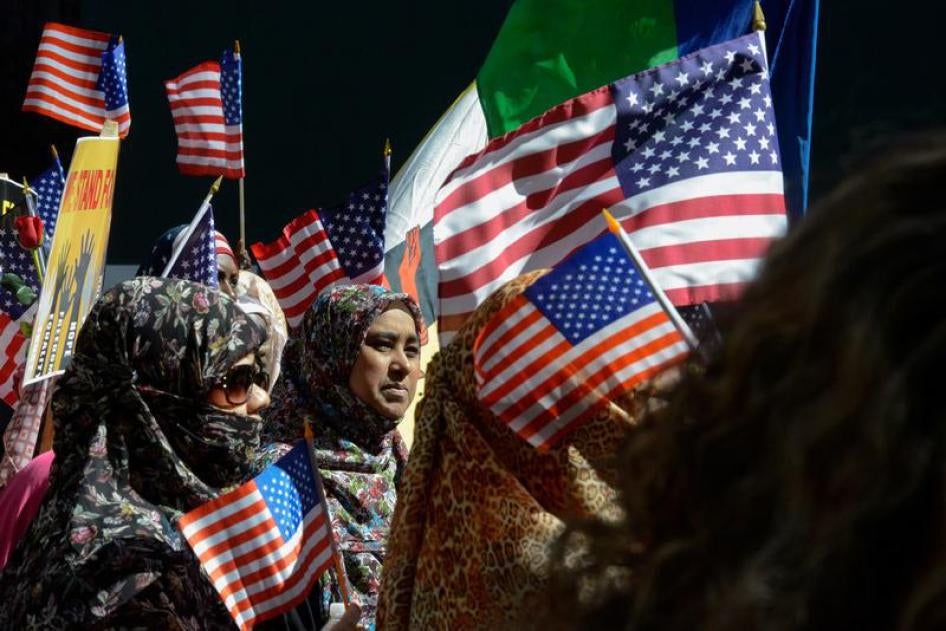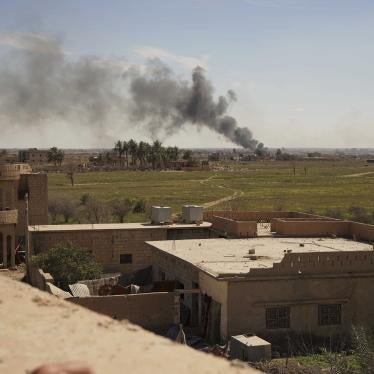There is a perception that a fear of terrorism should translate into a fear of Muslims. It has been fueled in part by President Donald Trump’s campaign promise to ban all Muslims from entering the country and his executive order banning certain travel from several Muslim-majority countries. This erroneous notion has contributed to an increasingly hostile atmosphere of Islamophobia in the U.S.
FBI and other data show that reported hate crimes against Muslims spiked last year to the highest levels since the September 11th attacks. Anti-Muslim hate groups are reportedly also on the rise, with the Southern Poverty Law Center estimating that the number of such groups tripled in 2016. As many officials, including President Trump, engage in dangerous rhetoric conflating Islam and the 1.6 billion Muslims worldwide with violent extremism, it’s important to take a sober look at the facts and data on this issue, which paint a very different picture.
While it is true that some terrorism attacks across the globe are carried out by Muslims associated with violent extremism, religion itself is not actually a good predictor of terrorist violence. Many factors are associated with terrorism, not just the person’s religion.
The Institute for Economics and Peace (IEP), a research center that analyzes and produces metrics concerning global peace and security issues, releases an annual report detailing various drivers and correlates of terrorism. Its latest report estimates that since 1989, 93 percent of all terrorist attacks have occurred in countries that experienced high levels of political instability and state-sponsored violence, such as extrajudicial killings, torture and imprisonment without trial.
The research also found that 90 percent of terrorist incidents occurred in countries with ongoing internal or international conflicts and that lower respect for human rights and the existence of policies targeting religious freedoms correlated with higher levels of terrorism. In developed nations, IEP also found that socio-economic factors such as “youth unemployment, lack of confidence in the press, low faith in democracy, drug crime and negative attitudes towards immigration” had strong correlations with terrorist incidents.
Opinion polling has shown that Muslims around the world widely reject violence and extremism, with most respondents overwhelmingly denouncing tactics such as suicide bombings. In fact, people in many countries with large Muslim populations were found to be just as concerned as Western nations about the threat of violent extremism. Likewise, surveys have shown that many people in countries with large Muslim populations have very unfavorable opinions of terrorist groups such as ISIS and Al Qaeda – as one example, Lebanon has only a 1-percent favorable opinion of ISIS. Also, despite the inaccurate claims that Muslims have not spoken out against terrorism, numerous Muslim scholars, clerics, and community leaders have repeatedly denounced terrorism and violent groups like ISIS and Al Qaeda.
While terrorist attacks in the U.S. carried out by Muslims associated with violent extremism is certainly an issue worthy of attention, it is important to remember that 96 people have been killed in a handful of such attacks since the September 11 attacks. Meanwhile, more than 300,000 people have been killed from gun-related deaths by other Americans during the same period. An American is more likely to die being struck by lightning or choking on food than being killed in a terrorist attack.
It’s also worth pointing out that violent acts and plots orchestrated by far-right individuals and groups, such as neo-Nazis and white supremacists, are just as much, if not more, of a problem in the U.S. In fact, before the 2016 Orlando shooting, far-right terrorism actually accounted for more deaths than those carried out by people associated with extremist views of Islam since September 11. Such incidents, however, have received far less attention and are almost always viewed as the isolated actions of disturbed individuals.
The reality is that terrorism simply does not pose as much of a threat as many people fear. While there will inevitably be acts of terrorism, the current atmosphere of Islamophobia in the U.S. is based far more on fear than on facts, and only fuels religious discrimination and alienation of Muslim communities. Scapegoating Muslims does nothing to keep people safer and instead feeds into the common recruitment narrative of ISIS that America is at war with Islam. To address real U.S. security issues, we need to deal in facts, not fear-mongering.










